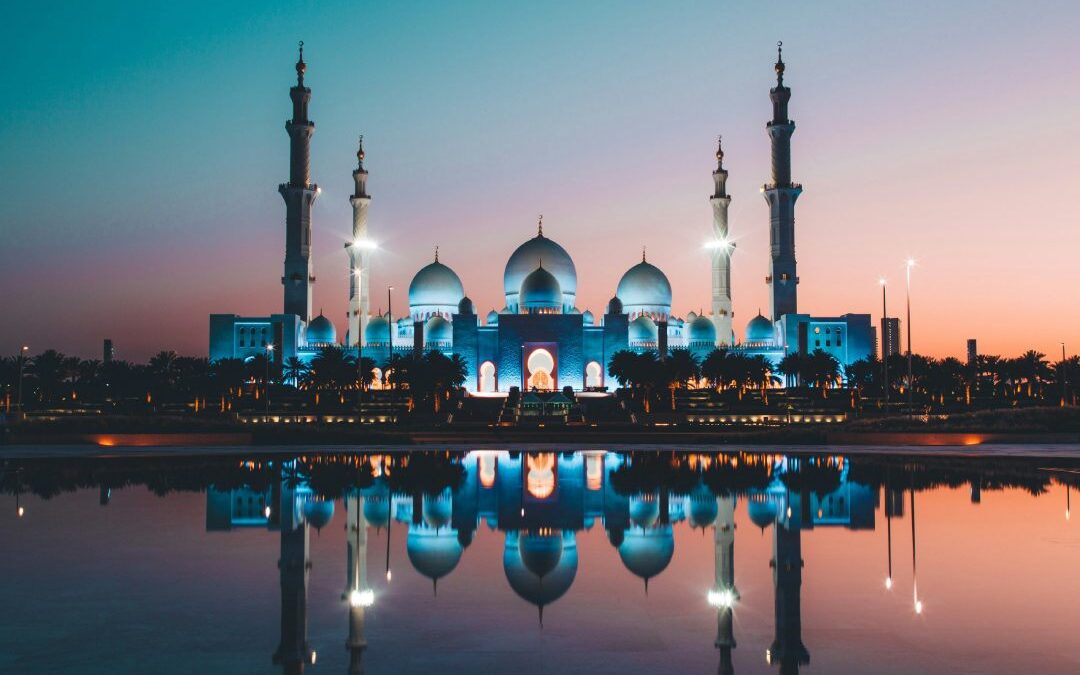Abu Dhabi’s Landmark Sustainability Project: The Net-Zero Energy Mosque
Pioneering Sustainable Mosques Around the Globe: Embracing Net-Zero and Super Low Energy Standards
In a remarkable leap towards sustainability and cultural preservation, Abu Dhabi has initiated the construction of a groundbreaking Net-Zero Energy Mosque. Masdar City has announced it will build a net-zero energy mosque, reported WAM, the official news agency of UAE. The upcoming mosque can accommodate 1300 worshippers at a time and will be fully powered by solar energy.
This pioneering project was officially launched in a ceremony attended by high-profile figures including H.E. Mohamed Helal AlBalooshi, Executive Director of Abu Dhabi Department of Economic Development, Dr. Bakheet Al Katheeri, CEO of UAE Investments Platform at Mubadala, Anwar Al Hanaei, Director at the General Authority for Islamic Affairs and Endowments in Abu Dhabi, and Samer El Masri, Chairman of M4 Contracting.
It exemplifies how modern technology and traditional values can merge to create spaces that are both environmentally responsible and spiritually significant. This project aligns with the broader vision of the UAE to lead by example in the global sustainability arena, showcasing innovative approaches to energy and environmental stewardship.
The mosque is designed to produce as much energy as it consumes, leveraging renewable energy sources to achieve a net-zero energy footprint. This ambitious project underscores the importance of sustainable development in religious and community spaces, reinforcing the message that faith and environmental responsibility must go hand in hand. The Net-Zero Energy Mosque is not just an architectural marvel but a beacon of Abu Dhabi’s commitment to integrating sustainability with its rich cultural heritage.
The Net-Zero Energy Mosque is poised to become a landmark in Abu Dhabi, representing a forward-thinking approach to sustainability that respects and honours cultural heritage. This initiative is a testament to Abu Dhabi’s proactive approach to fostering community involvement and cultural preservation while pushing the boundaries of sustainable development.
In an encouraging trend that mirrors the sustainability efforts of Abu Dhabi’s Net-Zero Energy Mosque, mosques around the world are increasingly adopting green standards, contributing significantly to the global movement towards environmental stewardship in religious spaces.
Singapore is at the forefront of this initiative, with Darul Makmur Mosque, Darusaalam Mosque, and Al-Raudhah Mosque all targeting the prestigious Super Low Energy Building (SLEB) status. This accolade is part of Singapore’s broader commitment to reducing its carbon footprint and promoting energy efficiency in buildings, including places of worship.
The Alkaff Kampung Melayu Mosque in Singapore is striving to achieve Net-Zero Energy Building (ZEB) certification, an ambitious goal that underscores the mosque’s dedication to sustainability. The ZEB certification denotes that the building produces as much energy as it consumes over a year, through the use of renewable energy sources and highly efficient energy systems. This initiative is particularly noteworthy as it aligns with the global push towards net-zero energy buildings, reflecting a deep commitment to environmental sustainability within the religious community.
Adding to the global tapestry of sustainable mosques, the Badraiya Juma Masjid located in Kodi, Kundapura, India, has been recognized as a ‘Net Zero Energy Building’ by the Indian Green Building Council (IGBC) during the 20th Edition of the Indian Green Building Congress 2022. This distinction marks the mosque as the first of its kind in India to achieve such a status, setting a remarkable precedent for other religious and community buildings in the country to follow.
These initiatives across different countries signify a growing awareness and action towards integrating sustainability within religious architectures. By targeting Super Low Energy Building (SLEB) and Net-Zero Energy Building (ZEB) statuses, these mosques are not only reducing their environmental impact but also setting an example for communities worldwide.
The ESG Times celebrates these significant strides towards sustainability in the religious sector and looks forward to witnessing more such green initiatives in the future, reinforcing the crucial role of all communities in the journey towards a more sustainable planet.
Also Read
UAE Spearheads Global Sustainability Efforts with Innovative Strategies

